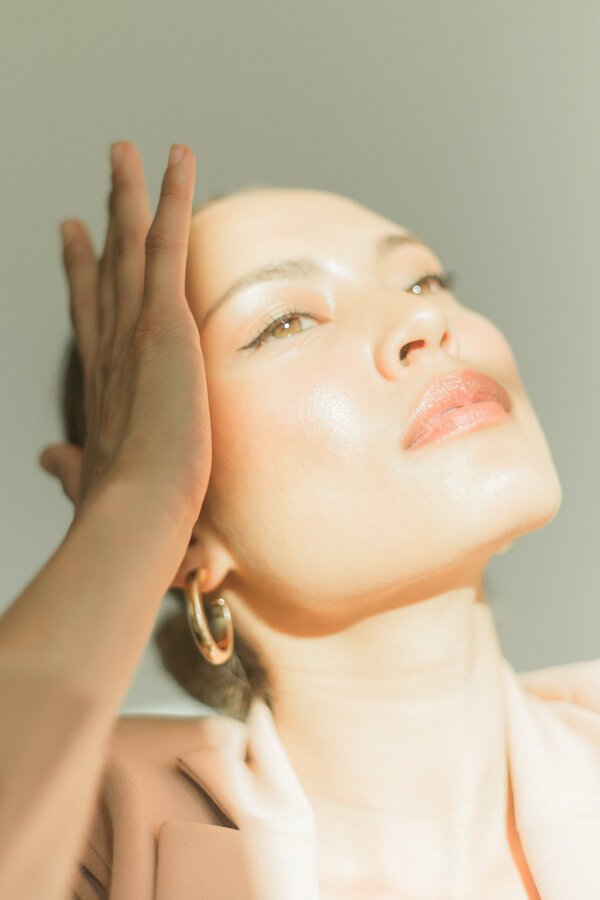
What Does “Natural Beauty” Mean For Skincare Brands?
Debunking Beauty Buzzwords
Natural, organic, clean, green, nontoxic—all of these words are used to describe the huge movement towards a more transparent beauty industry. Conversations about this phenomenon are on the rise, showing up in retailers as big as Sephora, Target, and CVS.
According to a Harper’s BAZAAR poll from 2019, nearly 50 percent of surveyed women (1,000 participants ranging in age, race, and ethnicity) claim to use natural beauty products. And in mid-2021, a Piper Sandler Companies survey across 7,000 teens in the US found that a whopping 80 percent of female teens were willing to spend more for clean or natural beauty.
“Without a clear meaning, greenwashing has the ability to run rampant.”
Yet, depending on the brand, company, or publication, the definition of “natural” varies. Without a clear meaning, greenwashing has the ability to run rampant, and discernment is necessary for filtering out false claims.
First, here’s how we define natural beauty: Natural beauty refers to skincare and cosmetics products made without ingredients proven to be harmful to people or the environment.
Is natural beauty truly better than opting for conventional? By doing our research and shopping thoughtfully, we can weed out the potentially harmful products from the nourishing ones.
How Conventional Versus Natural Beauty Products Affect Our Health
One of the most glaring differences between conventional and clean beauty products is the attention to ingredients. Not unlike the food industry, traditional beauty brands have been selling products with incredibly long ingredient lists for years. In addition, many of those ingredients bear complicated names, making the list difficult to comprehend for the average consumer.
Many watchdogs and natural beauty advocates have found these confusing lists hide a plethora of toxic chemicals. Over the last decade, scandal after scandal has called the products we put on our bodies into question. Parabens, phthalates, and SLS (Sodium Lauryl Sulfate), for example, are used in skincare, but they’ve been exposed as possibly harmful preservatives and synthetic aids.
“Many watchdogs and natural beauty advocates have found these confusing lists hide a plethora of toxic chemicals.”
For these reasons, natural beauty brands have taken over the industry and touted themselves as healthier alternatives to big beauty corporations. Some companies go so far as to claim that their products are safe enough to eat. Seriously. Watch Gwyneth Paltrow and Jimmy Fallon eat a Goop product.
But here’s where it gets tricky: The beauty industry—including the natural beauty industry—is largely self-regulated, and the FDA in the United States hasn’t defined the term either. We may be in the dark about ingredients in conventional beauty products, but we don’t always know the truth about “natural” products either.
While greenwashing is often used in reference to clothing, the concept wreaks havoc in this industry, too. Conversely, some marketing of clean beauty products perpetuates the misconception that all chemicals are harmful, and all naturally-occurring chemicals are nontoxic.
The bottom line? Our best bet is to take our time looking into each natural beauty product before we buy it.
How Conventional Versus Natural Beauty Products Affect the Environment
Along with the health scares related to the beauty industry, traditional products create a hefty carbon footprint. Ingredients commonly found in conventional beauty products such as silicone are not only bad for our health but also detrimental to the environment.
The most significant environmental impact is how traditional ingredients are extracted or manufactured—regardless of if they are naturally occurring or not.
“The most significant environmental impact is how traditional ingredients are extracted or manufactured.”
For instance, palm oil is a natural substance, though the methods used to harvest it often strip the land, leaving destruction behind. Some natural beauty brands will still use palm oil but specify the use of oil harvested by companies who have NDPE policies (no deforestation, no peat development, and no exploitation).
Many natural brands go the extra step to ensure their sourcing is sustainable, though the pandemic has strained supply chains. As we continue to ask for transparency, we should demand answers from all brands—where every link in the chain matters.
We can’t forget about packaging either. According to Fortune, only nine percent of the world’s plastic has been recycled since 1950—and the industry creates more than 120 billion units of packaging each year. All of this packaging contributes to the overflowing landfills, plastic ocean pollution, and microplastic epidemic.
Most clean beauty brands have taken it upon themselves to find sustainable alternatives to wasteful packaging such as reusable glass containers or by using recycled materials. But this isn’t the case across the board, which is why it’s helpful to research before making a purchase.
Ultimately, many beauty ingredients and their impacts are neither all good nor all bad, requiring more mindful shopping.
Are Natural Beauty Products Truly Better?
The conclusion? Natural beauty brands are making more of a proactive, transparent effort to protect our health and the planet’s by investing in responsibly derived ingredients. However, it remains vital for customers to make thoughtful purchases, regardless of the labels beauty products boast.
“If a beauty brand claims to be natural but doesn’t provide specifics, it’s most likely greenwashing.”
Just like in ethical fashion, the key is to avoid generalized claims and vague wording. Instead, take a few extra minutes to read the ingredients list on a product and scroll through a company’s website.
Look for specific certifications and third-party vetting. If a beauty brand claims to be natural but doesn’t provide specifics, it may be greenwashing.
Consider using the following template and question list when reaching out to brands for information about ingredients, ethics, and sustainable practices.
Dear [Insert Brand],
I’m interested in purchasing [insert product] and would love to learn more about the listed ingredients. On your website you state that you [insert brand claim, i.e. sustainable practices, clean ingredients, ethical manufacturing etc.] and I’m wondering what exactly that means. Could you tell me what your brand specifically does to ensure that no ingredients in [insert product] harm people or the planet?
I look forward to hearing more about [insert brand]!
Thank you for your time,
[Insert Your Name]
Other questions to ask:
1. Where do you source your ingredients from?
2. How do you ensure that your ingredients are sourced ethically & sustainably?
3. How do you package and ship your products?
4. Could you provide a transparent breakdown of your supply chain?
5. Does your brand give back or support any environmental organizations?
Finally, since natural beauty means something different to every company and customer, it’s important to know your values and make purchases that align with your beliefs. No one company can do it all, though many are making genuine strides towards a better beauty industry. And that’s the first step in making a difference.
Start your natural beauty journey by checking out our favorite natural makeup brands committed to organic, natural, and cruelty-free practices.
Audrey Stanton was born and raised in the Bay Area and is currently based in Los Angeles. She works as a freelance writer and content creator with a focus in sustainable fashion. Audrey is deeply passionate about conscious living and hopes to continue to spread awareness of ethical consumption.




